Latin America politics: UK's 1960s covert activity revealed
- Published
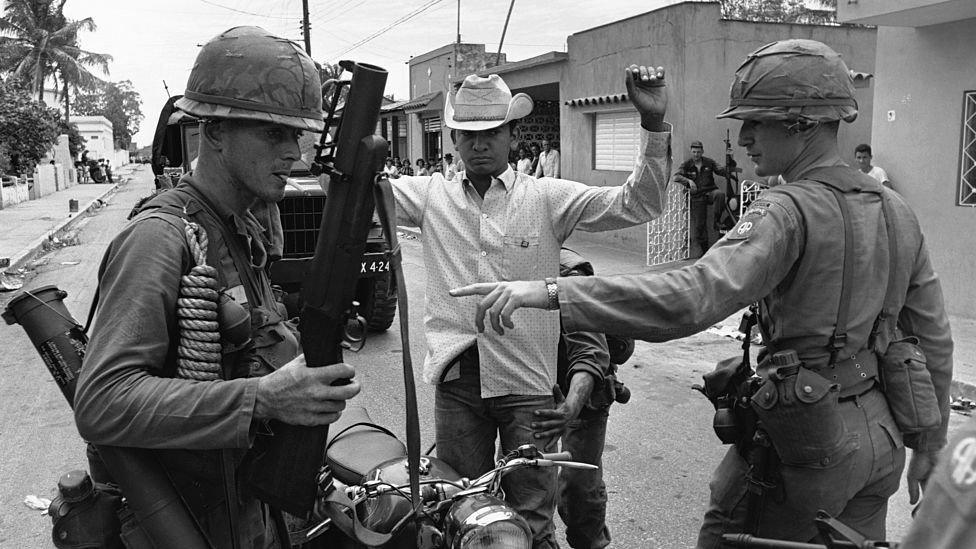
The role of the US in Latin America and the Caribbean has been well documented but less is known about British ops
British intelligence engaged in a far more active programme of covert activity in Latin America in the 1960s than previously understood, it has been claimed.
While the work of US intelligence in the region has been widely publicised, the UK role is much less known.
But Prof Rory Cormac of the University of Nottingham says recently declassified files reveal attempts to influence elections and disrupt trade unions in a number of countries.
At the start of the 1960s, the UK dramatically increased covert action in Latin America, undertaking what was called "special political action", including propaganda and forgeries which aimed to influence the public, primarily against communism.
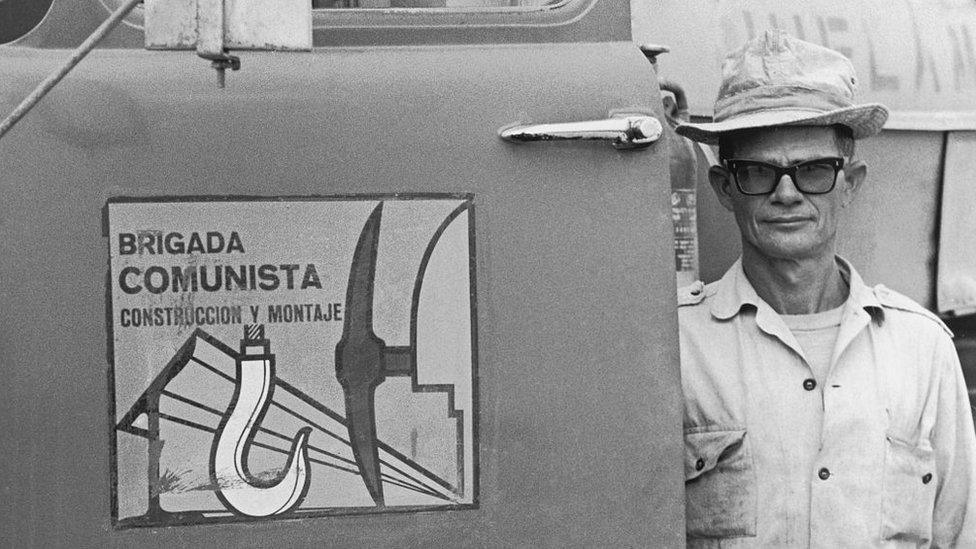
The idea was to counter communist influence in Latin America
"This is surprising because historians tend to associate UK covert operations with targets in the Middle East and Southeast Asia, and assume that the British left Latin America to the CIA," Prof Cormac told the BBC.
'Black propaganda'
After a diplomat named Ronnie Burroughs visited Latin America on behalf of the British Foreign Office and MI6 in 1961, a decision was taken in London to increase covert action - activities where the role of Britain was kept hidden with a particular focus on "black" propaganda, which involves false material or where people are deliberately misled about who is producing it.
The region was seen as of growing importance globally but also with signs of increasing communist influence, especially after the Cuban revolution.
The region had not been a particular focus for London and its ally, Washington, normally took the lead, considering it part of his "sphere of influence". The US was still far more active but the UK, Prof Cormac says, became involved partly as a means of currying influence with America and also to increase trade in the region.
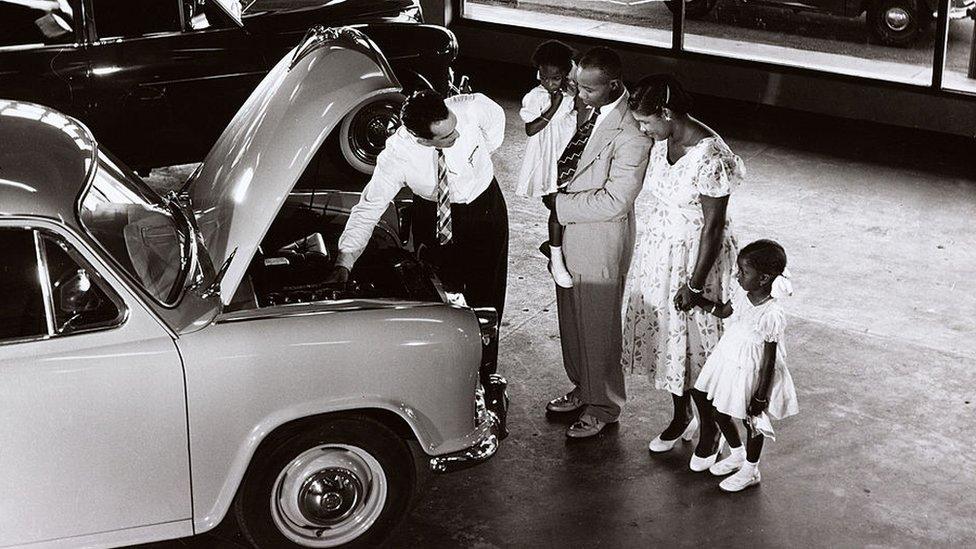
Britain was keen to increase trade with Latin America and the Caribbean
"The UK conducted these covert operations for two reasons," he says. "First, to demonstrate partnership to the US in order to inject leverage into an increasingly one-sided relationship. Second, the British wanted to exploit a perceived US decline in the region and capture a growing economic market. These two objectives did not always sit together harmoniously."
The UK increased the number of those working on propaganda in the region and MI6 opened new stations, including in Chile and Venezuela (a UK official rating the latter as a "a major prize": "She is a very rich country and her government is a major source of investment capital").
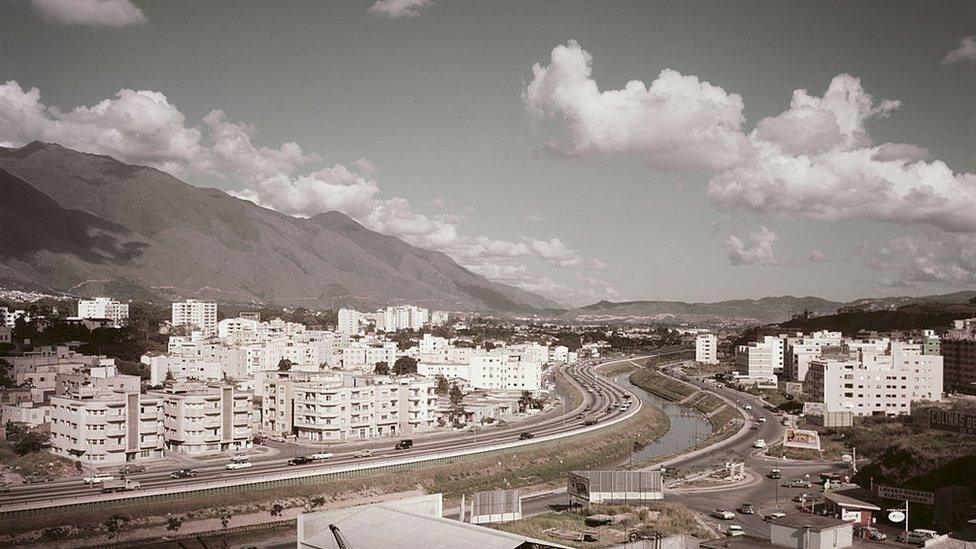
Venezuela was seen as a "major prize"
The main mission was to counter communism using propaganda and working with churches, trade unions and political parties.
The operations included creating a new mass-circulation magazine in Colombia and distributing pamphlets in Chile and Bolivia. Local radio producers were bribed to get airtime and produced tapes to be played. One Briton boasted "that if he was given £100,000 to play with he could buy virtually all the radio commentators in the Andean region!"
They also worked with priests in Bolivia to distribute material and counter Soviet and Cuban propaganda.
In Ecuador, they worked with priests who were thought to be able to mobilise people to act against President Carlos Julio Arosemena Monroy, who was viewed by the British as a "thoroughly unprincipled and undesirable character".
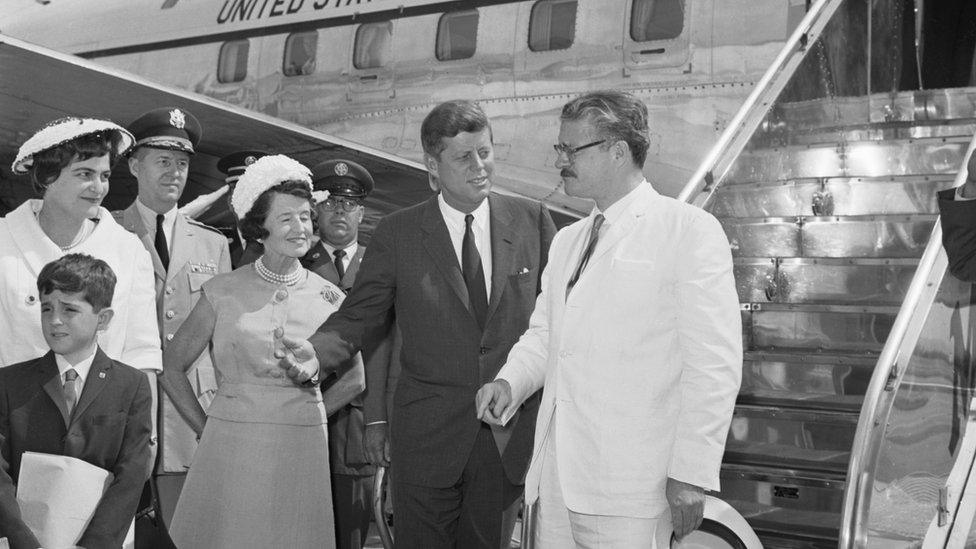
President Arosemena, who was sympathetic to the Cuban revolution, was not popular with the British
They thought they could bring, if needed, a "mob" of at least 5,000 people, largely Catholic youths, on to the streets of Quito, according to Prof Cormac's article The Currency of Covert Action: British Special Political Action in Latin America, 1961-64 published in the Journal of Strategic Studies, external.
Based on files, declassified in 2019 and 2020, he says the UK worked on trade unions through infiltrating and capturing them or disrupting meetings.
One idea involved targeting Brazilian President João Goulart with a forged document indicating that the communists were taking over the trade unions to make him fear his own position within them was being undermined by the hard left.
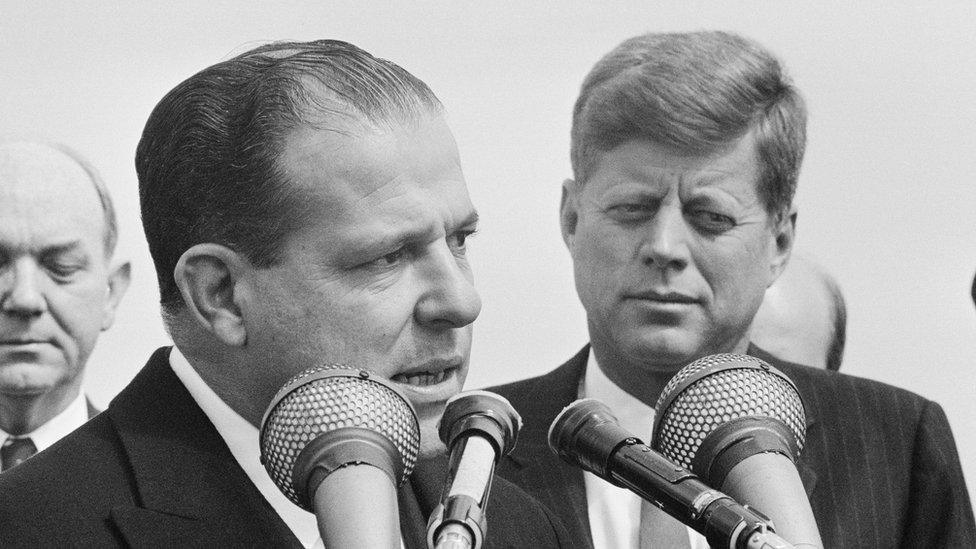
In April 1962, Brazilian President João Goulart went to Washington to meet John F Kennedy but relations soured later
This was not carried out though and he was overthrown in a coup - backed by the US - in 1964.
In some cases they considered trying to influence elections, notably a presidential election in Chile in 1964 which they feared the socialist Salvador Allende might win.
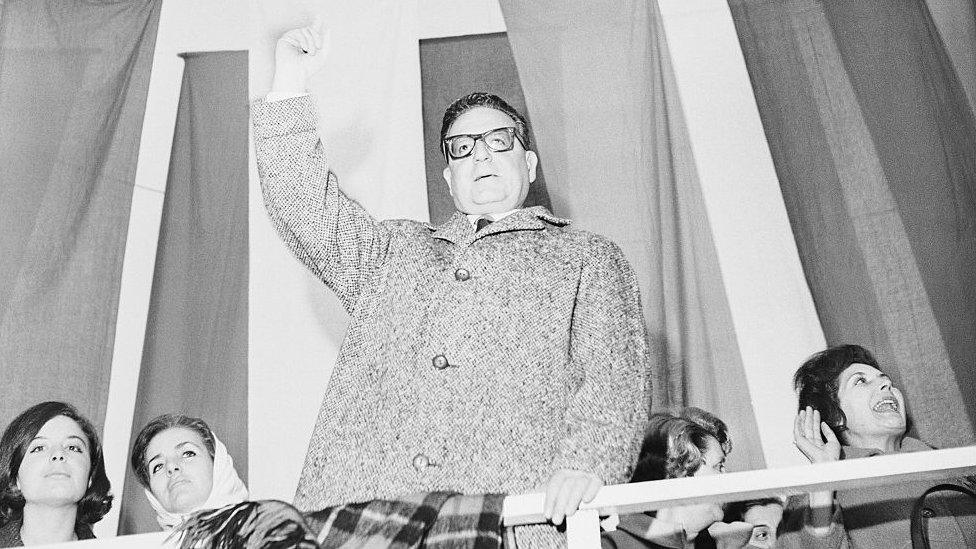
Salvador Allende ran for president in Chile in 1964 but lost to Eduardo Frei
"Once in power the chances are that Allende would be manoeuvred by the communists, either willingly or otherwise, and that the end-product might well be a Government on the Cuban pattern," a file reads. But here British efforts were dwarfed by those of the US which spent around $3m over two years on trying to influence the same election.
Overall, Prof Cormac argues the UK was using covert action partly to "maintain a global role on the cheap".

You may be interested in:
The American-backed overthrow of Guatemala's government in 1954